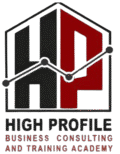Services
Marketing and Sales

Market Analysis and Opportunity Identification
Marketing Feasibility Studies: Assessing demand for new products using tools such as PESTEL Analysis (political, economic, social, technological, environmental, and legal factors). Competitive Analysis: Identifying competitors' strengths and weaknesses through SWOT reports and benchmarking. Define Target Segments: Segment customers based on behavior (repeated/seasonal purchases) or demographics (age, location, income).
Build Innovative Marketing Strategies
A. Digital Marketing Search Engine Optimization (SEO): Analyzing keywords and creating optimized content to increase organic traffic. Paid Advertising (SEM): Designing campaigns on Google Ads and social media platforms with conversion rate optimization (CRO). Content Marketing: Producing educational videos, blogs, and infographics to attract leads (lead generation). B. Traditional Marketing Integrated Advertising Campaigns: Planning TV, radio, and billboard ads in coordination with digital campaigns. Brand Events: Organizing workshops or participating in exhibitions to raise product awareness.
Improving Sales Team Performance
Rep Training: Courses in persuasion skills, objection management, and closing deals using realistic scenarios. Designing Incentive Structures: Linking rewards to specific key performance indicators (KPIs), such as the number of new customers or monthly sales volume. Sales Intelligence Tools: Implementing CRM systems (such as Salesforce) to track customer interactions and predict purchasing behavior.
Data Analysis and Decision Making
Performance Reporting: Measuring the effectiveness of marketing campaigns through bounce rate data, customer acquisition cost (CAC), and return on investment (ROI). Artificial Intelligence Tools: Using platforms like Google Analytics 4 or HubSpot to predict market trends and customize offers. A/B Testing: Testing two different versions of an ad or landing page to determine the most effective.
Customer Relationship Management (CRM)
Experience Personalization: Segmenting customers and offerings based on purchase history and preferences. Loyalty Programs: Designing reward systems that motivate customers to increase their purchases (such as redeemable points). Complaint Management: Developing rapid communication channels (live chat, WhatsApp Business) to convert negativity into loyalty.
Brand Development
Integrated Visual Identity: Designing a logo, colors, and fonts that reflect the brand's values. Reputation Management: Monitoring customer reviews on platforms like Trustpilot and Google Reviews and responding proactively to feedback. Storytelling: Building a compelling narrative that connects the product to the customer's daily life.
Innovative Solutions to Specific Challenges
Influencer Marketing: Collaborating with influencers in targeted industries to increase credibility. Crisis Marketing: Contingency plans to address rumors or negative events through clear and immediate messages. Green Marketing: Strategies to promote sustainability as part of the marketing identity (such as using environmentally friendly materials).
Impact Measurement and Continuous Improvement
Quarterly Reports: Evaluating the extent to which previously set goals are being met and adjusting strategies based on results. Marketing Audit: A comprehensive review of all marketing activities to identify gaps and untapped opportunities.
Accounting, Finance, and Feasibility Studies

Accounting and Financial Services
Financial Reporting: Analyzing budgets and cost centers and preparing financial statements according to local and international standards. Auditing and Reviewing: Examining financial records to verify their accuracy and compliance with tax regulations. Cash Flow Management: Analyzing liquidity and planning payments to ensure the stability of daily operations. Internal Systems: Designing document and accounting cycles and establishing internal control systems. Financial and Investment Studies Feasibility Studies: Evaluating the economic viability of new or expansion projects by analyzing expected costs and returns. Company Valuation: Determining the fair value of companies using methodologies such as comparative financial analysis and asset valuation. Due Diligence: A comprehensive assessment of financial and legal risks prior to mergers or acquisitions.
Tax Consulting
Tax Planning: Optimizing corporate tax structures to reduce liabilities while complying with laws. Tax Compliance: Preparing tax returns and auditing tax accounts due. Specialized Services Public Offering (IPO): Preparing stock exchange listings and issuing prospectus. Restructuring: Reorganizing companies' financial or administrative structures to improve efficiency. Investment Management: Developing customized investment strategies based on market analysis and financial objectives. Additional Financing Services Identifying Financing Sources: Analyzing appropriate financing options (loans, bonds, crowdfunding). Negotiation Management: Mediating with banks and financial institutions to secure the best terms. These services provide clients with tools to achieve financial stability and maximize profits, while taking into account regulatory compliance and managing potential risks. Basic Studies Economic Feasibility: Analyzing expected costs and returns using internationally recognized methodologies, providing detailed financial forecasts. Marketing Feasibility: Field surveys to measure demand, competitor analysis, and identifying target segments through field studies and analytical tools. Technical Feasibility: Evaluating production line requirements, selecting the optimal location, and submitting equipment quotations from international companies. Financial Feasibility: Modeling cash flows, calculating profitability indicators (such as net present value), and identifying financing sources
Specialized Training & Development

Specialized Training Programs
Management Skills Training: Programs in leadership, strategic planning, team management, and decision-making. Sales Courses: Including sales team management, sales data analysis, setting key performance indicators (KPIs), and negotiation skills. Modern Marketing: Training in digital marketing, advertising campaign management, market analysis, and brand building.
Management Consulting
Institutional Diagnosis: Analyzing the current situation of companies and identifying weaknesses in management structures. Strategy Development: Designing long-term strategic plans and managing associated risks. Operation Improvement: Restructuring departments and increasing operational efficiency through specific initiatives.
Executive Training Services
Leadership Programs: Focusing on senior leadership skills, crisis management, and effective communication. Soft Skills Training: Such as time management, creative thinking, and negotiation.
Sales and Marketing Consulting
Marketing Strategy Improvement: Designing integrated marketing plans based on data and market analysis. Brand Management: Developing visual identity and marketing messages. Feasibility Studies: Evaluating market opportunities and providing recommendations for increasing market share.
Performance Evaluation and Results Monitoring
Establishing performance indicators: Designing evaluation systems to track the progress of teams and projects. Developing operational plans: Ensuring the implementation of strategies through specific actionable steps.
Specialized Services
Market research training: Collecting and analyzing data to make informed decisions. Technology consulting: Integrating digital tools into sales and marketing strategies. These services are provided through specialized consulting teams that include experts in management, finance, and marketing, with programs customized to the needs of clients (individuals/corporates).
Human resources

Strategy Development
This includes designing robust human resources strategies that align with the company's overall objectives, as well as business strategies that enhance competitiveness. This is achieved through gap analysis to identify weaknesses and develop improvement plans.
Recruitment and Talent Management
Providing integrated solutions that include improving recruitment processes, building an employer brand to attract talent, and outsourcing recruitment and temporary workforce management services. This also includes designing a job competency dictionary to ensure alignment between skills and job requirements.
Training and Development
Implementing customized training programs to enhance the competency of existing employees, both in technical and leadership skills, while providing individualized professional development plans. These services include training the HR teams themselves on modern best practices.
Organizational Structure Design
Restructuring companies by designing flexible organizational structures that fit business volume and growth objectives, including establishing job classification systems and fair salary structures.
Legal Compliance and Risk Management
Ensuring that internal policies comply with local and international labor laws, and providing specialized legal advice to avoid disputes and penalties. This also includes establishing mechanisms to manage risks related to employee turnover or internal conflicts.
Develop Policies and Procedures
Create detailed policy and procedure manuals covering all aspects of HR work, such as performance management, incentive systems, and job discipline procedures. This is done to ensure transparency and fairness in dealing with employees.
Improve Technology and Processes
Provide advanced technological solutions for HR management, such as electronic payroll systems, smart performance appraisal platforms, and FinTech solutions integrated with HR management.
Specialized On-Demand Services
Operate flexible working models such as project-based consulting or temporary support during crises, allowing companies to benefit from expertise without incurring the costs of permanent recruitment. These services also include developing leadership discovery and empowerment plans within the organizational structure.
Monitoring and Evaluation
Some companies, such as Inspire, offer post-implementation follow-up services for up to 3 months to ensure the desired results are achieved, with periodic evaluations to measure impact.
Recruitment
HIGH-PROFILE is regarded as one of the leading companies in the field of recruitment and hiring. It is also in charge of finding the right candidate to raise the levels of ability and efficiency that your company requires; our customers vary by sector, industry, region, and culture. As a result, we rely on developing the best recruitment campaign for each company to recruit the best candidates.
Steps of the Recruitment Process:
- Receive employment applications including job description
- Specification of effective sources of the employment
- Announce vacancies on the specific sources
- Collecting and filtering CVs in accordance with required specifications
- Procedures of soft skills and technical skills tests
- Sending the client’s final candidates for final interviews
- Verification of selected candidates’ references
- Prepare a detailed report for each candidate and send it to the client
- Coordination of candidates’ final interviews
- Follow-up interviews of the selected candidate.
- Follow-up to the evaluation of the test period
Other Services & Government Services

1. Opening insurance files for companies.
2. Completing insurance procedures for company employees.
3. Resolving all insurance problems, violations, and insurance cases.
4. Issuing certificates for company cars and motorcycles, as well as completing licensing procedures.
5. Establishing employee files in accordance with labor laws.
6. Building the administrative and financial structure of companies based on a study of local market averages.
7. Resolving all labor office problems.
8. Evaluating, developing, and training company employees to achieve a professional level.
9. Providing all the administrative and technical human resources the company needs.
10. Designing job description cards for each position within the organization.
11. Applying comprehensive quality standards to all company departments and its management.
12. Developing modern training programs for all company departments.
13. Developing business plans for companies based on available capabilities and working to optimally utilize these capabilities. Working on preparing the company’s mission, vision, and objectives and developing strategic plans for them.
14. Crisis management within companies and providing local and alternative solutions.
15. Designing a technical KPI evaluation system in accordance with the technical work procedures within the company’s departments.
16. Designing and implementing an audit system for all company departments.
17. Establishing and designing work software, internal databases, and all types of online programs for all company departments, such as:
Administrative Affairs Program
Human Resources Program
Customer Service Program
Corporate Accounting Program
Developing strategies to improve operations
Implementing and training on best leadership practices
Implementing business ethics principles
